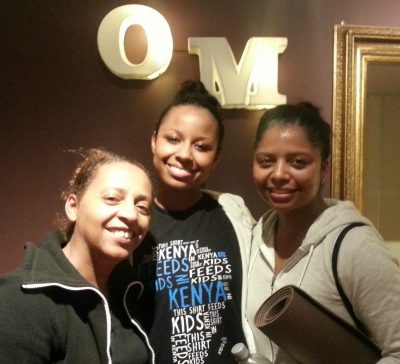As beginners, your first experience of yoga is generally in a group class led by a teacher. You go to a couple of classes, you find yourself getting into it. Then you start hearing about “self-practice” and how that’s really how you take your practice to the next level – by bringing yoga home, inviting it into your life outside the studio, gym, or wherever else you practice with your favourite teacher.
Creating your own practice gives you the space to explore each posture of your own choosing, to move at your own pace. To discover for yourself the multitude of experiences that a single posture can offer. But does it make you less of a yogi if you don’t practice at home? Should you feel bad about your self-discipline, or that your yoga knowledge is lacking, just because you don’t religiously roll out your mat to greet every sunrise?
Yes, yoga is generally thought of as a self-reflective, inward-looking practice. Your body and your mind are yours alone, whatever exploration you do can only ever be a journey that is deeply personal. But as anyone who likes people-watching knows – you don’t have to literally be alone to be self-reflective. I have had some of the deepest moments of self-realization and awareness whilst crammed in on a busy train, or moving through downtown crowds on a Saturday afternoon.
It’s the feeling of similarity, of a shared existence, that makes me feel just a little bit more human – and so, a little bit more myself. And this is the importance of sangha, or shared community. If community and harmony and universal love et cetera are too touchy-feely for you, just think of it as having company. Yes, I can walk over to Tesco and get the shopping done perfectly fine on my own. But it’s just nice to go together with my housemate, just for company. We don’t even have to talk. Maybe we’ll share a basket, maybe not. We’re just doing our own thing – but sharing our space at the same time.
Humans are hardwired to connect. Scientist Matthew Lieberman, for example, thinks that the need to connect is as fundamental as food or water. We need validation, approval, acceptance in order to feel human.
And it’s hard to take your practice home when your partner just wants to veg out on the sofa and crack open a bottle of wine. Not saying that this isn’t a fantastic way to spend an evening – just that sometimes, you need to be around people who just understand the joy that you get from collapsing face down into a child’s-pose-shaped jelly after some intense vinyasas. The joy of “OM”-ing with full throat-chakra cleansing abandon without worrying that your kids are in the living room discussing whether you need to be sectioned.
So do I think that self-practice is important? Sure. But I think that having a space where you can be with people with similar goals and intentions is important. We have this desire to connect to others, in one way or another. So we need people to practice with. People to talk about experiences with, who speak words that resonate, or allow you to access a flash of some deeper insight. Those who effortlessly float their feet skywards like they were two floaty things, to inspire us and convince us that it is possible. And also those who wobble and fall comically in (attempting) headstand, to remind us that the best thing we can do is just try.
